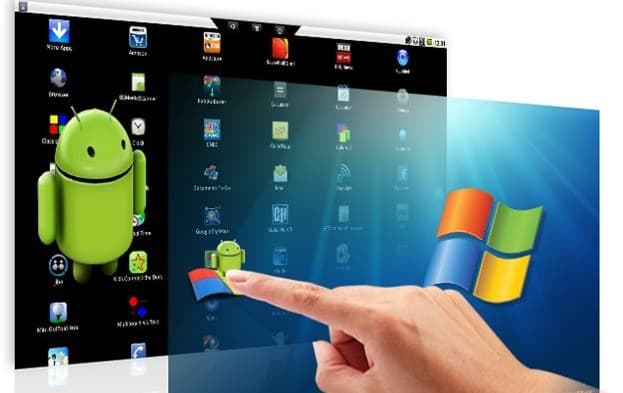AMD Looks Beyond Windows 8, Welcomes Android & Chrome OS
AMD has decided to give up the long-running Windows exclusivity stand and extend its loyalty to Google's Android and Chrome OS Operating Systems. Advanced Micro Devices is now open to designing chips that are based on x86 and ARM architecture so that they can run multiple OSes. AMD had declared full devotion towards Windows 8 while claiming little interest in Android on previous occasions but the sentiment seems to have changed since then. The company is eager to expand its custom-chip business and is counting on Android and Chrome OS' flexibility for third-party design and implementation. The company hasn't been entirely hostile towards the idea of Android support, having offered BlueStacks emulator to run Android apps on AMD-based tablets and PCs. While the idea has been conceived, there is no official word as to when the AMD-based Android tablets would be in production.

The reception of Windows 8 on tablets has been slow and Android support could provide a larger market for AMD. Till that happens, the company hopes to make its mark with the launch of Temash series products, the A4 and A6 processors. The chips promise low power consumption at 3.9 watts and battery life up to eight hours while Web browsing. The Temash chips are 64-bit and have been designed in compatibility with Windows 8. Competing directly with Intel's Bay Trail tablet chips which focus on battery life, Temash claims robust PC-like performance, including support for DirectX 11 on tablets. Devices running Temash will debut in second half of the year.
Source: #-Link-Snipped-#

The reception of Windows 8 on tablets has been slow and Android support could provide a larger market for AMD. Till that happens, the company hopes to make its mark with the launch of Temash series products, the A4 and A6 processors. The chips promise low power consumption at 3.9 watts and battery life up to eight hours while Web browsing. The Temash chips are 64-bit and have been designed in compatibility with Windows 8. Competing directly with Intel's Bay Trail tablet chips which focus on battery life, Temash claims robust PC-like performance, including support for DirectX 11 on tablets. Devices running Temash will debut in second half of the year.
Source: #-Link-Snipped-#
Replies
You are reading an archived discussion.
Related Posts
After gathering more than 100 million users around the world to opt for the 'One Channel' during its open beta phase, the new channel design goes universal today. If you...
If you care for energy, Microsoft has something very important message for you - 'Ditch Chrome & Firefox and switch over to IE10'. Why? Because Microsoft's latest study finds out...
Stanford University scientists writing in Nature Communications asserts that novel electrodes made of silicon and conducting polymer hydrogel betters the performance of rechargeable Lithium-ion batteries. Using this method, these scientists...
Having robots write automated prose for your sports column, the thought is in itself unsettling and intriguing. But it is now a reality that Narrative Science, a start-up based in...
Team,
I'm happy to inform you that we've finally been able to turbo-charge CrazyEngineers! We ditched our old web-servered in favor of a zazzy & speedy server that delivers pages...
